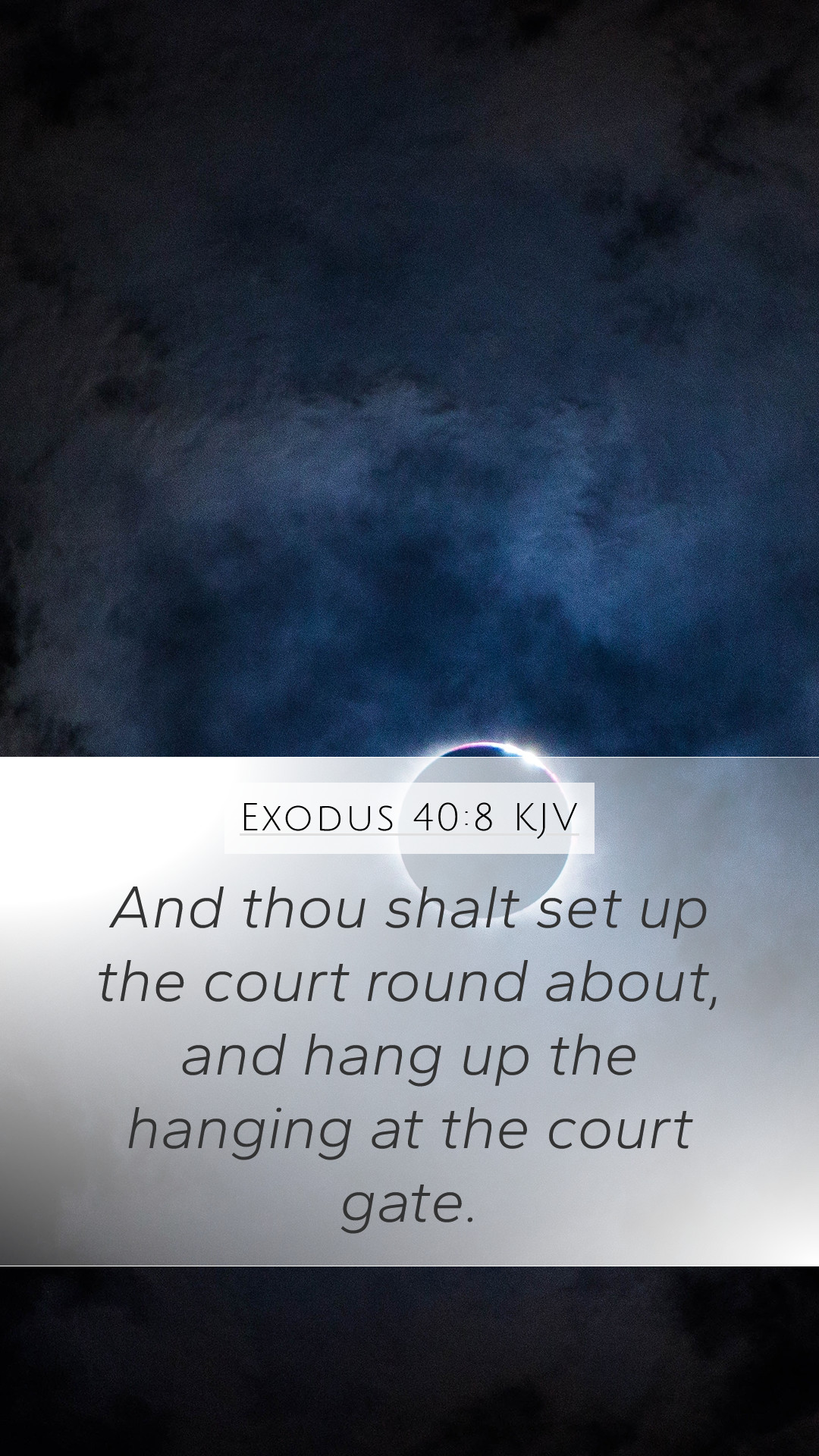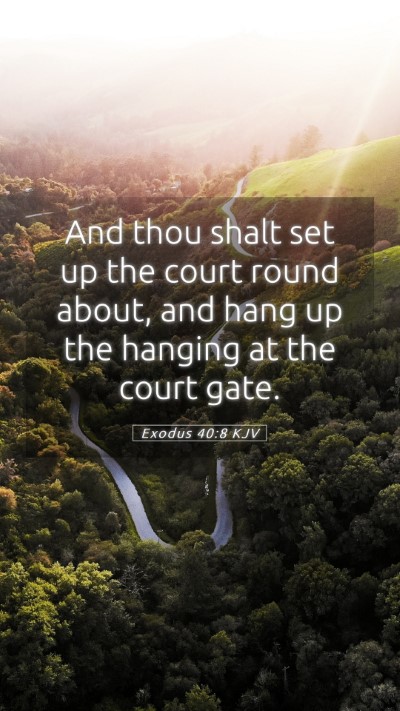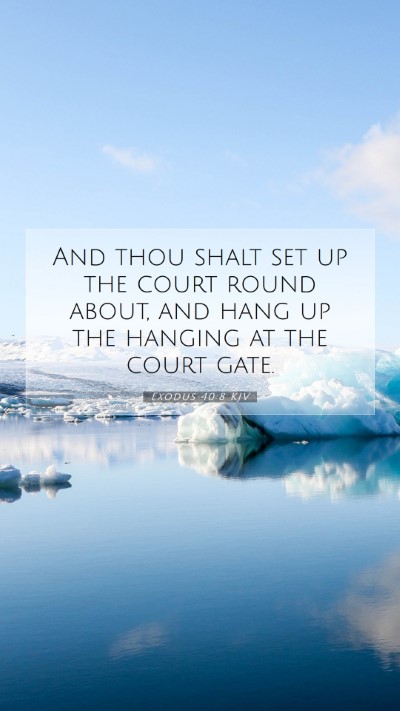Exodus 40:8 - Understanding the Significance of the Tabernacle
Exodus 40:8 states, "And you shall set up the court around it, and hang up the veil for the entrance of the court." This verse is significant as it marks the completion and establishment of the Tabernacle, the sacred dwelling place for God among His people. This commentary will delve into the meanings and interpretations of this verse, exploring its theological implications and its relevance in both the Old and New Testaments.
Bible Verse Meaning
Understanding Scripture begins with recognizing the context and intention behind specific passages. Matthew Henry notes that the construction of the Tabernacle represented God's desire to dwell among His people. The court's setup and the veil signify both God's holiness and the separation between Him and sinful humanity.
Commentary Insights
-
Matthew Henry: He emphasizes that the Tabernacle served as a portable sanctuary, symbolizing God's presence with the Israelites during their wanderings. The veil is particularly important as it decorates the entrance, highlighting the precious distinction between the sacrosanct holy space and the outer world.
-
Albert Barnes: Barnes adds that the veil not only serves as a separator but as an indicator of God's holiness. It is a constant reminder of the need for atonement, implying that access to God requires purification and sacrifice.
-
Adam Clarke: Clarke elaborates on the practical implications of the verse for Israelite worship. His commentary portrays the Tabernacle as a foreshadowing of Christ, where the veil symbolizes His flesh which was torn for humanity, facilitating access to the Father.
Theological Implications
This verse speaks to the themes of accessibility, holiness, and worship in the life of a believer. It represents God's initiative in establishing a relationship with His people, and how this is mirrored in the New Testament through Jesus' sacrifice. The veil, which was torn during the crucifixion (Matthew 27:51), symbolizes the breaking down of barriers between God and humanity.
Application in Daily Life
In applying the meanings of Exodus 40:8, believers may reflect on the significance of God dwelling among us today. Through the Spirit, believers can experience a personal relationship with God. This verse encourages individuals to pursue holiness and recognize the importance of community and worship within the church.
Bible Study Insights
For those involved in Bible study groups or online Bible study, this passage provides rich material for discussion. Here are some suggested topics:
- Understanding the symbolism of the veil and its New Testament implications.
- The importance of the Tabernacle in Israelite worship and its relevance for today’s church.
- How our approach to worship reflects our understanding of God's holiness.
Cross References
Exodus 40:8 is connected to various scripture passages that enrich its understanding:
- Hebrews 9:1-7: Discusses the earthly sanctuary and its regulations.
- Matthew 27:51: The tearing of the veil at Christ's crucifixion, symbolizing open access to God.
- 2 Corinthians 6:16: Affirms believers as the temple of the living God.
Conclusion
Exodus 40:8 not only signifies the completion of the Tabernacle but also serves as a profound lesson on God's desire for communion with humanity. Through Bible verse meanings and explanations provided by renowned scholars, we gain a deeper understanding of the sacredness of worship and the significance of Christ fulfilling God's promise of dwelling among His people.


